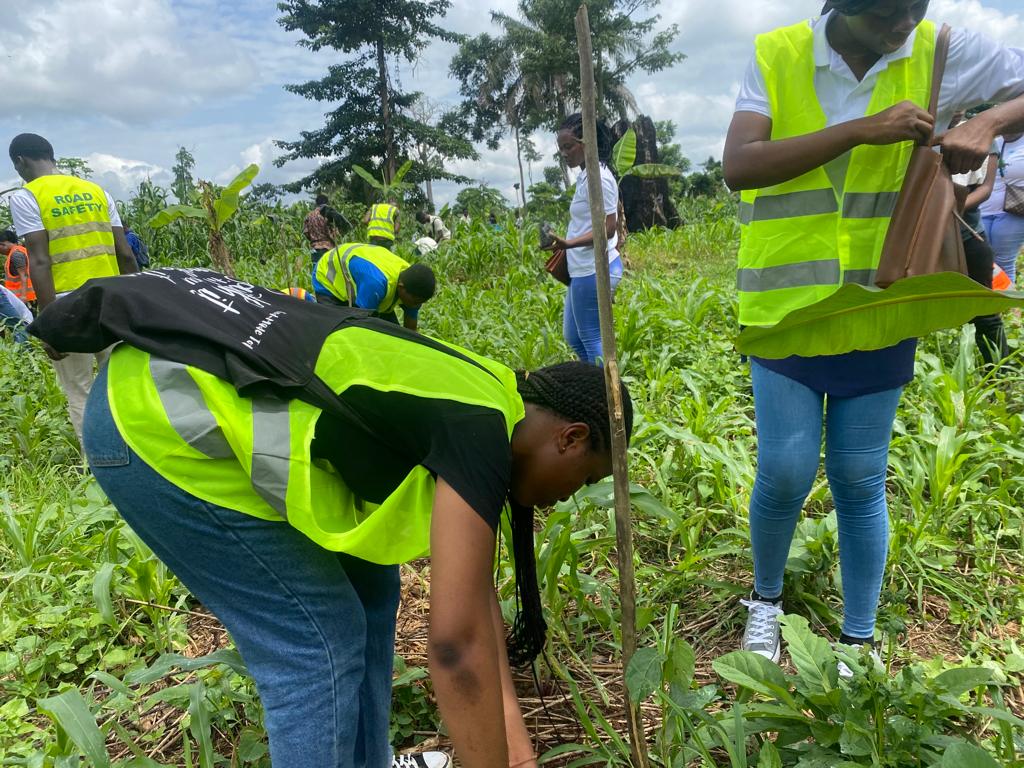By Florence Afriyie Mensah
Akotaa (Ash), June 11, GNA – The Institute of Nature and Environmental Conservation (INEC) Ghana has planted over 2,000 tree seedlings of ‘Ofram’ (terminalia) in the Asenanyo Forest Reserve in the Atwima-Mponua District of Ashanti Region.
The exercise was to mark the 2023 Green Ghana Day, an initiative by the Government to empower Ghanaians to plant trees in response to the level of forest degradation in Ghana.
It was in partnership with A Rocha Ghana and some 80 students from the College of Agricultural and Natural Resources at Kwame Nkrumah University of Science and Technology (KNUST).
The goal is to restore the Asenanyo Forest Reserve which has been overly degraded through illegal logging and unsustainable farming activities.

Mr. David Kwarteng, Director of INEC Ghana, told the Ghana News Agency (GNA) that to ensure greater survival of the trees, the Institute was collaborating with farmers in the area to plant some of the seedlings in already established farms.
This means as the farmers planted their crops, they could manage and maintain the tree seedlings under little or no supervision.
“We are planting on already established farms with maize and plantain with the hope that in few years the maize and the other staple crops will phase off after harvesting. We will then have the chance to plant other trees and when the trees form canopies the farmers will vacate the land for the trees to grow,” he noted.
Mr Kwarteng said the country needed to take proactive measures to restock locally threatened tree species, explaining that INEC Ghana had initiated a project to restock African teak trees in the Asenanyo Forest Reserve and Afram Headwaters Reserve at Kwapenin, near Offinso.
INEC Ghana has in the last three years planted close to 160,000 trees of African teak (Krokrodua), a species which has been listed as endangered by the International Union for Conservation of Nature (IUCN).
It is also prioritising planting mahogany which has been excessively exploited over the years for its precious timber, and again establishing ‘Ofram’ due to its fast-growing nature and adapting to different environmental and ecological conditions.
INEC Ghana targets to plant 200,000 seedlings of varied economical and ornamental trees this year.
Mr. Daniel Peprah, Forest Manager, Asenanyo Forest Reserve, pledged that proper management of the trees will be ensured to increase the survival rate.
He mentioned that when the trees matured, security would be strengthened to back off illegal logging activities.
Mr Emmanuel Aduse-Poku, a student of KNUST who partook in the exercise, advised Ghanaians to take tree planting exercise seriously to be able to restore the forest which served as a habitat to other living organisms.
Madam Zeinabu Issah, farmer, whose farm benefitted from the tree planting exercise said she would do her best to monitor and nurture the trees to grow to benefit future generations.
GNA